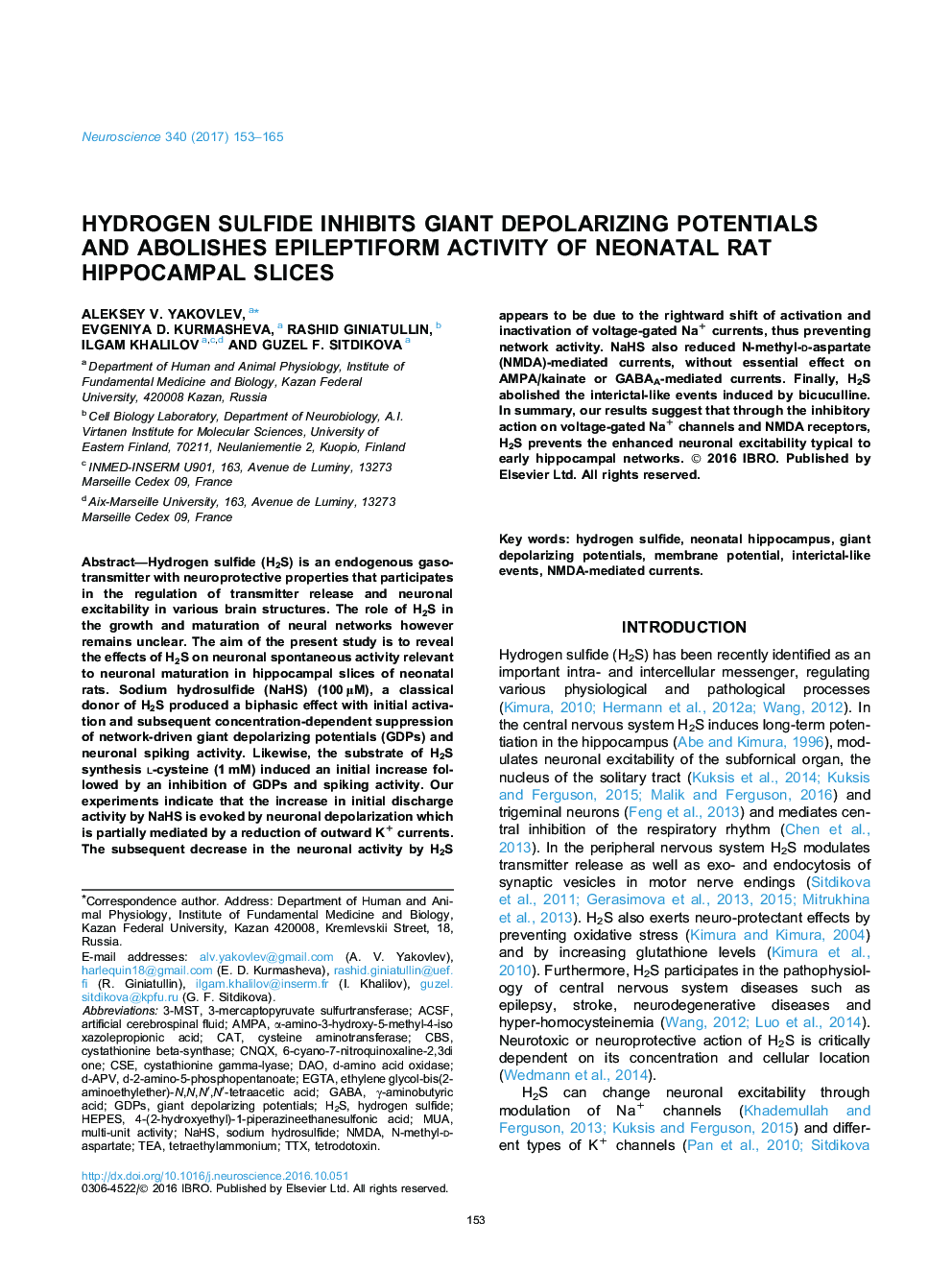| کد مقاله | کد نشریه | سال انتشار | مقاله انگلیسی | نسخه تمام متن |
|---|---|---|---|---|
| 5737536 | 1614736 | 2017 | 13 صفحه PDF | دانلود رایگان |
- Exogenous and endogenous H2S decreases network activity in the immature rat hippocampus.
- H2S evokes TTX-resistant depolarizations of neurons and reduces outward K+ currents.
- H2S decreases NMDA-mediated currents without effects on GABAA and AMPA/kainate responses.
- H2S completely abolishes bicuculline-evoked epileptiform activity in the hippocampus of neonatal rats.
Hydrogen sulfide (H2S) is an endogenous gasotransmitter with neuroprotective properties that participates in the regulation of transmitter release and neuronal excitability in various brain structures. The role of H2S in the growth and maturation of neural networks however remains unclear. The aim of the present study is to reveal the effects of H2S on neuronal spontaneous activity relevant to neuronal maturation in hippocampal slices of neonatal rats. Sodium hydrosulfide (NaHS) (100 μM), a classical donor of H2S produced a biphasic effect with initial activation and subsequent concentration-dependent suppression of network-driven giant depolarizing potentials (GDPs) and neuronal spiking activity. Likewise, the substrate of H2S synthesis l-cysteine (1 mM) induced an initial increase followed by an inhibition of GDPs and spiking activity. Our experiments indicate that the increase in initial discharge activity by NaHS is evoked by neuronal depolarization which is partially mediated by a reduction of outward K+ currents. The subsequent decrease in the neuronal activity by H2S appears to be due to the rightward shift of activation and inactivation of voltage-gated Na+ currents, thus preventing network activity. NaHS also reduced N-methyl-d-aspartate (NMDA)-mediated currents, without essential effect on AMPA/kainate or GABAA-mediated currents. Finally, H2S abolished the interictal-like events induced by bicuculline. In summary, our results suggest that through the inhibitory action on voltage-gated Na+ channels and NMDA receptors, H2S prevents the enhanced neuronal excitability typical to early hippocampal networks.
Journal: Neuroscience - Volume 340, 6 January 2017, Pages 153-165
